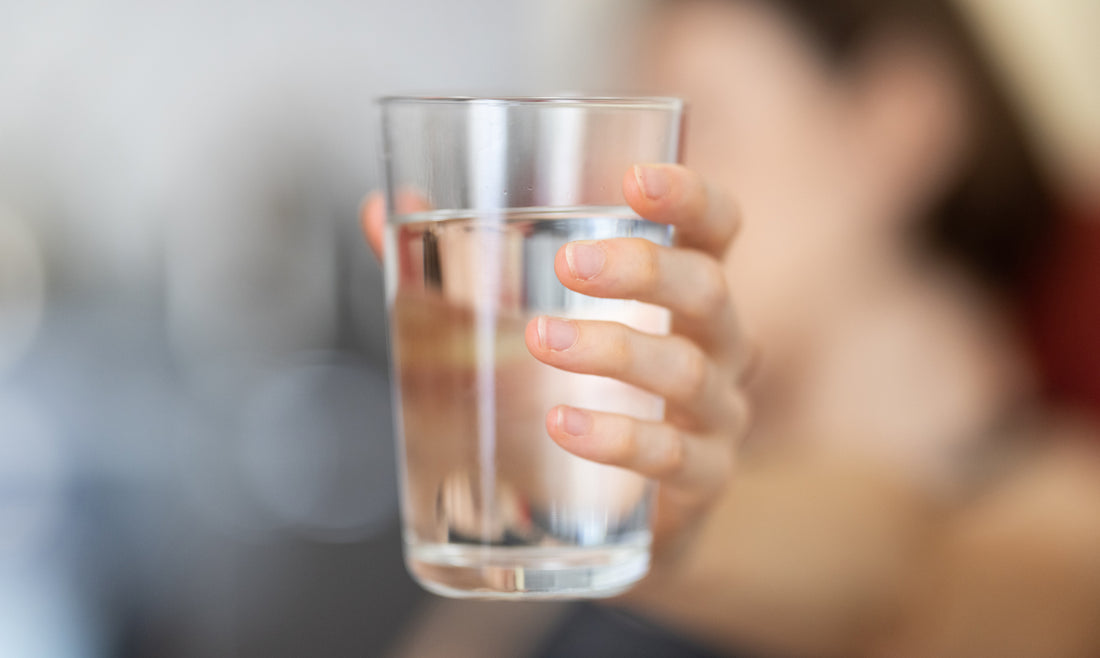Millions of people in the U.S. currently suffer from digestive disorders. One of the most common forms is Inflammatory Bowel Disease (IBD).
The most common forms of IBD are Crohn's Disease and Ulcerative Colitis, which impact about three million adults in the U.S.
But over the past few years, Crohn's diagnoses have increased dramatically.
"I really honestly feel that in the last ten years, it has gotten completely out of control," says Dr. Bhavna Vaidya
Physician and Owner of Regenesis MD.
What is Crohn's Disease?
Those living with inflammatory bowel disease, specifically Crohn's, will experience chronic and painful inflammation affecting the entire digestive tract. If not adequately treated, Crohn's can lead to scarring, sores, and other damage within the digestive system.
The most common symptoms of Crohn's disease are:
- Persistent Diarrhea
- Abdominal Cramps and Pain
- A constant and urgent need to move the bowels
- Constipation, which can lead to bowel obstruction
- Rectal bleeding
What Causes Crohn's Disease?
Unfortunately, the exact cause of Crohn's is unknown.
But according to Dr. Vaidya, stress, gut microbiome dysregulation (imbalance of good v.s. bad bacteria in the gut), and inflammation are major triggers in developing Crohn's.
And, of course, individuals with a family history of Crohn's will be more susceptible to developing the disease.
How Does Crohn's Disease Contribute to Dehydration?
According to Naturopathic Doctor Ameet Aggarwal, IBD disease-related factors like diarrhea make maintaining proper hydration challenging.
If dehydration isn't treated immediately, Crohn's symptoms may worsen, exacerbating dehydration and forming a vicious cycle.
Low fluid intake is one factor for increased dehydration in a person with Crohn's. Sometimes a person with Crohn's may experience discomfort with eating or drinking due to sores that develop in the mouth. As a result, water intake may be low, leading to dehydration.
Another dehydration risk factor for people with Crohn's disease is an ileostomy procedure. About three percent of people who had an ileotomy were readmitted to the hospital within 30 days due to dehydration. Other factors contributing to post-ileostomy hospital readmission are older age, a more severe Crohn's disease status, and high blood pressure.
If bowel inflammation due to Crohn's becomes too severe, surgery may be necessary to remove portions of the intestines. The large and small intestines absorb around 80% of fluid, and removing these vital components severely restricts the body's ability to hydrate properly.
Tips for Staying Hydrated with Crohn's Disease
Staying hydrated while living with Crohn's is less of a challenge when following these suggestions.
- Avoid excessive sugary drinks like soda, juices, sports, and energy drinks. The high sugar content in these beverages can compromise the body's natural balance of good and bad bacteria, worsening Crohn's symptoms.
- Avoid alcohol and caffeine as much as possible, as these beverages can increase the urge to urinate, increasing the risk of dehydration.
- Monitor fluid loss by paying attention to any episodes of diarrhea and excessive urination.
- Check urine color. A pale yellow or clear color indicates proper hydration, but dark brown or dark yellow points to possible dehydration.
- Consume potassium-rich foods like fruit and veggies. Examples include raisins, spinach, bananas, and salmon, to name a few.
- Take medication as directed by the health care team. Both Vaidya and Aggarwal agree that proper hydration aids in the proper metabolism of medication used to treat Crohn's.
- Including electrolytes as part of a hydration plan is also important, as essential minerals like sodium and potassium are lost during bouts of diarrhea. Electrolyte products are sold at grocery stores, pharmacies, or online retailers. Avoid sports drinks with electrolytes as they have food coloring and artificial sweeteners that can irritate the gut.
So How Much Water Should Someone with Crohn's Consume?
It's important to note that each person with Crohn's is different and may require more or less than the typical daily requirement according to sex, the severity of the disease, as well as other factors.
Aggarwal and Vaidya agree that at least eight glasses of daily water intake is the minimum for good hydration for a person with Crohn's.
You're busy enough with life and managing your Crohn's diagnosis. Monitoring your water intake is one less thing you want to do. And remembering to drink may seem impossible during busy days.
We heard you.
Our PÜL AI technology is perhaps the best way to ensure you stay adequately hydrated throughout the day, allowing you to track your water intake in real time. Personalized reminders can help build psychological habits that make drinking water easy. Download our PÜL® hydration app today and enjoy better hydration.

Sources:
Centers for Disease Control and Prevention. People with IBD Have More Chronic Diseases. Accessed on November 15, 2022. https://www.cdc.gov/ibd/features/IBD-more-chronic-diseases.html
Luther, Jay, M.D., et al. Rising Inflammatory Bowel Disease Prevalence Highlights the Need for Effective, Cost-Effective Therapies. Inflammatory Bowel Diseases, Volume 26, Issue 4, April 2020, Pages 626–627, https://doi.org/10.1093/ibd/izz203
Crohn's and Colitis Foundation. Small and Large Bowel Resection. Accessed on November 15, 2022. https://www.crohnscolitisfoundation.org/what-is-crohns-disease/treatment/surgery/small-large-bowel-resection#:~:text=A%20bowel%20resection%20is%20a,healthy%20ends%20are%20joined%20together
Chen, Sophia, Y., et al. Predicting the Risk of Readmission From Dehydration After Ileostomy Formation: The Dehydration Readmission After Ileostomy Prediction Score. Diseases of the Colon and Rectum. December 2018. https://pubmed.ncbi.nlm.nih.gov/30303886/
Interviewed:
Ameet Aggarwal Naturopathic, Doctor and Wellness Coach
Based in Kenya and Beverly Hills, CA
Link to Website: https://www.drameet.com and https://www.fimafrica.org/
LinkedIn: https://www.linkedin.com/in/drameetnd
Bhavna Vaidya
Physician and Owner- Avance care Clayton, Regenesis MD, Raleigh
Website: http://www.regenesismd.com/
LinkedIn: https://www.linkedin.com/in/bhavna-vaidya-22663738/

